
"Hi, Vanessa! Nice to see you!" It feels good to hear those words when I see people I know. But I take it for granted that I have even heard that greeting-and, in fact, all other sounds. I never think about how I'm hearing things, how my brain is translating sounds into meaning.
Yet the process is fascinating. The journey of a sound from outside the ear and into the brain, which takes only milliseconds, is mind-bendingly elaborate. First, the sound waves enter each ear and vibrate the paper-thin eardrum. That vibration moves two small bones that sit behind it, which begin to dance in sync with the vibrations.
Then a third bone sitting against the cochlea starts to vibrate, and things get really interesting. The cochlea is a peasized bony structure shaped like a snail shell and filled with fluid. It's lined with tens of thousands of hair cells topped with bundles of miniature tubes called stereocilia. That vibrating third bone beats against the cochlea, like knocking on a door. The cochlea's fluid sways, and the hair cells wave like sea anemones. That movement causes the hair cells to release chemical neurotransmitters, triggering a series of electrical messages that are carried through the auditory nerves into the auditory cortex of the brain, which translates the electrical code into meaning.
The delicate stereocilia and hair cells have a limited lifespan. We start to lose our hearing because, as they're used again and again through a lifetime of exposure to sounds at regular volume or a shorter-term exposure to loud sounds-they can become damaged and stop doing their job. Called presbycusis, this age-related hearing loss is the most common type.
If I had mild to moderate presbycusis, certain consonants would be more difficult to discern, so "Hi, Vanessa. Nice to see you!" would sound like "...i Vane...a. Nice ...o ...ee you!"
A Growing Problem
This story is from the May 2023 edition of Reader's Digest US.
Start your 7-day Magzter GOLD free trial to access thousands of curated premium stories, and 9,000+ magazines and newspapers.
Already a subscriber ? Sign In
This story is from the May 2023 edition of Reader's Digest US.
Start your 7-day Magzter GOLD free trial to access thousands of curated premium stories, and 9,000+ magazines and newspapers.
Already a subscriber? Sign In
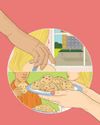
Cookies for Forgiveness
My blowup was half-baked. The apology wasn't
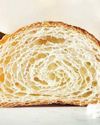
Puff the Magic Pastry
It always rises to the occasion
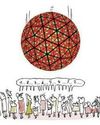
New Year's Traditions Around the World
1 MOST OF US spend the final seconds of each calendar year watching a nearly 12,000-pound geodesic sphere descend over Times Square in New York City.
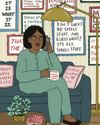
Mom's Wall-Sign Wisdom
She never met a plaque or bumper sticker she didn't quote

Protect Your 'Holiday Heart'
This joyful time of year can also be dangerously stressful

Heroes of the Holidays
It's not just Santa Claus bringing the holiday magic this season. As you'll see, he's got elves all over.

The Man Who Looks After His Wife's Ex
For him and his bride, \"in sickness and in health\" meant something really special

How Risky Are Those Holiday Cocktails, Really?
The latest recommendations about drinking and your health

HOW ONE KENTUCKY TOWN SAVED ITSELF
Downtown Hazard had lost its small-town mojo to drugs. Former addicts are helping to bring it back.
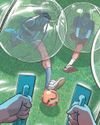
Dream It, Do It, Done!
Your bucket-list goals, accomplished